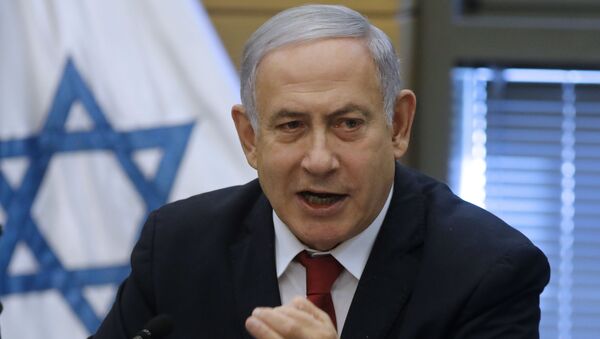Israel must inject billions of shekels into its defence budget to fight a growing threat from Iran, Prime Minister Benjamin Netanyahu told the newly sworn-in Knesset as he upped the ante in his struggle for a unity government and the future of his prime ministership.
Speaking to lawmakers on Thursday, Netanyahu said that defence spending must increase by “many billions immediately and then many billions every year”.
According to Netanyahu, the rationale behind this is the growing strength of Iran: “We are facing an enormous security challenge, which only intensifies from week to week. It increased profoundly in the last month or two, and, in particular, in the last few weeks. This isn’t spin, it’s not a whim, this is not ‘Netanyahu trying to scare us’”.
On the same day, in an unprecedented move, Iran announced that it had foiled a joint plot by Israeli and Arab security agencies to assassinate Qasem Soleimani, the Revolutionary Guard’s intelligence chief and one of Iran’s most prominent military commanders.
This announcement came as yet another sign of a looming military conflict in the Middle East, where tensions are on the rise between Iran and the Arab monarchies that have traditionally confronted Israel – such as Saudi Arabia, the UAE, and Oman. Over the last few years, Israel has been drawing closer with these states, which see Iran as a common enemy and the United States as a common friend.
The situation in the region remains volatile following the opening of a border crossing between Syria and Iraq, which triggered concerns in Israel that Iran might use it to move weaponry and fighters to Syria and onward to Israeli borders. Iran maintains that its military presence in Syria is limited to military advisers.
However, any move towards military escalation from Israel is believed to be unlikely until the country overcomes the political uncertainty resulting from an inconclusive general election.
Netanyahu has failed to secure a clear election win in two elections since April, and currently has fewer than three weeks to form a governing coalition. President Rivlin has proposed to put together a unity government between Netanyahu and his chief rival, Benny Gantz, but talks are currently stalled.
If Netanyahu fails to strike a power-sharing deal, Gantz will likely be given an opportunity to form a coalition, although his path to prime ministership also seems unclear. Thus, if he fails, a third election will likely be set off.
With his political prospects mired in uncertainty, Netanyahu’s personal future is also beyond his complete control, as the prime minister is facing a potential indictment on bribery, fraud, and breach of trust allegations in three separate cases. The battle to avert the indictment in pre-trial hearings began this week, while a decision on charges is expected by the year-end.




